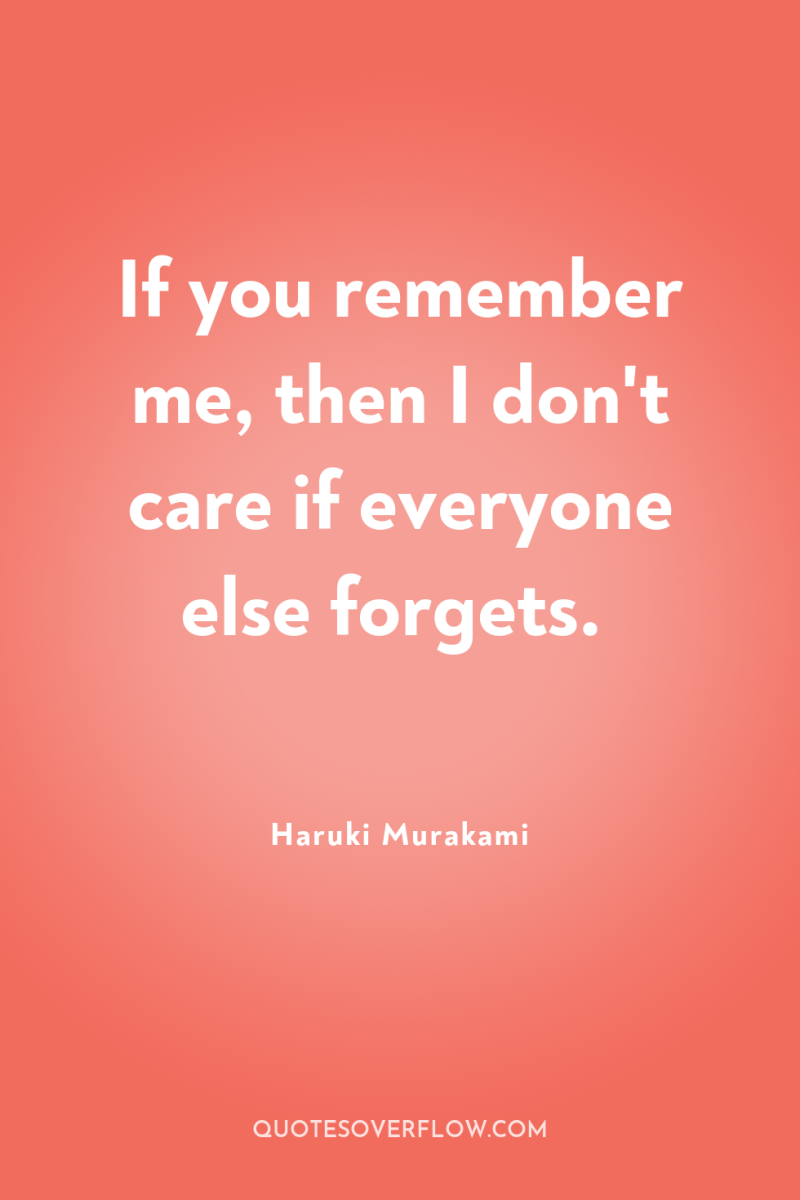
1
If you remember me, then I don't care if everyone else forgets.Haruki Murakami
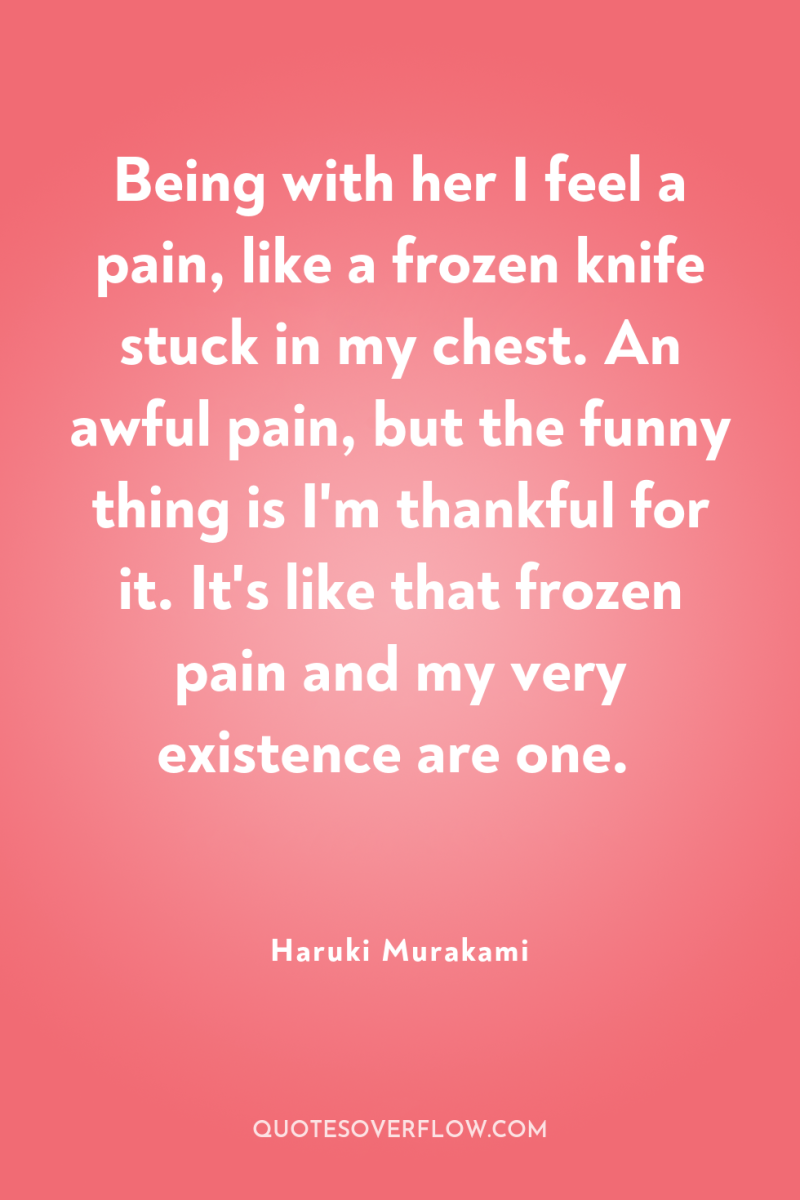
2
Being with her I feel a pain, like a frozen knife stuck in my chest. An awful pain, but the funny thing is I'm thankful for it. It's like that frozen pain and my very existence are one.Haruki Murakami
3
Most things are forgotten over time. Even the war itself, the life-and-death struggle people went through is now like something from the distant past. We’re so caught up in our everyday lives that events of the past are no longer in orbit around our minds. There are just too many things we have to think about everyday, too many new things we have to learn. But still, no matter how much time passes, no matter what takes place in the interim, there are some things we can never assign to oblivion, memories we can never rub away. They remain with us forever, like a touchstone.Haruki Murakami
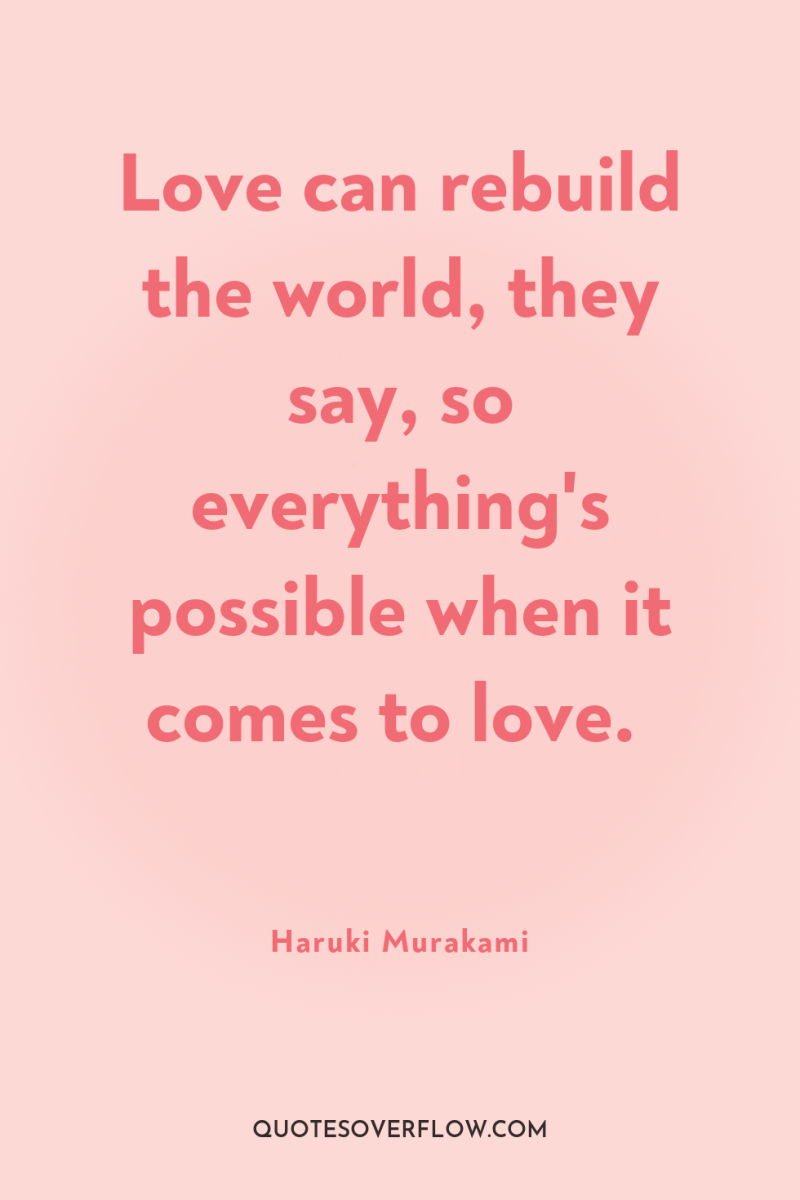
4
Love can rebuild the world, they say, so everything's possible when it comes to love.Haruki Murakami
5
Time expands, then contracts, all in tune with the stirrings of the heart.Haruki Murakami
6
Lost opportunities, lost possibilities, feelings we can never get back. That's part of what it means to be alive. But inside our heads - at least that's where I imagine it - there's a little room where we store those memories. A room like the stacks in this library. And to understand the workings of our own heart we have to keep on making new reference cards. We have to dust things off every once in awhile, let in fresh air, change the water in the flower vases. In other words, you'll live forever in your own private library. .Haruki Murakami
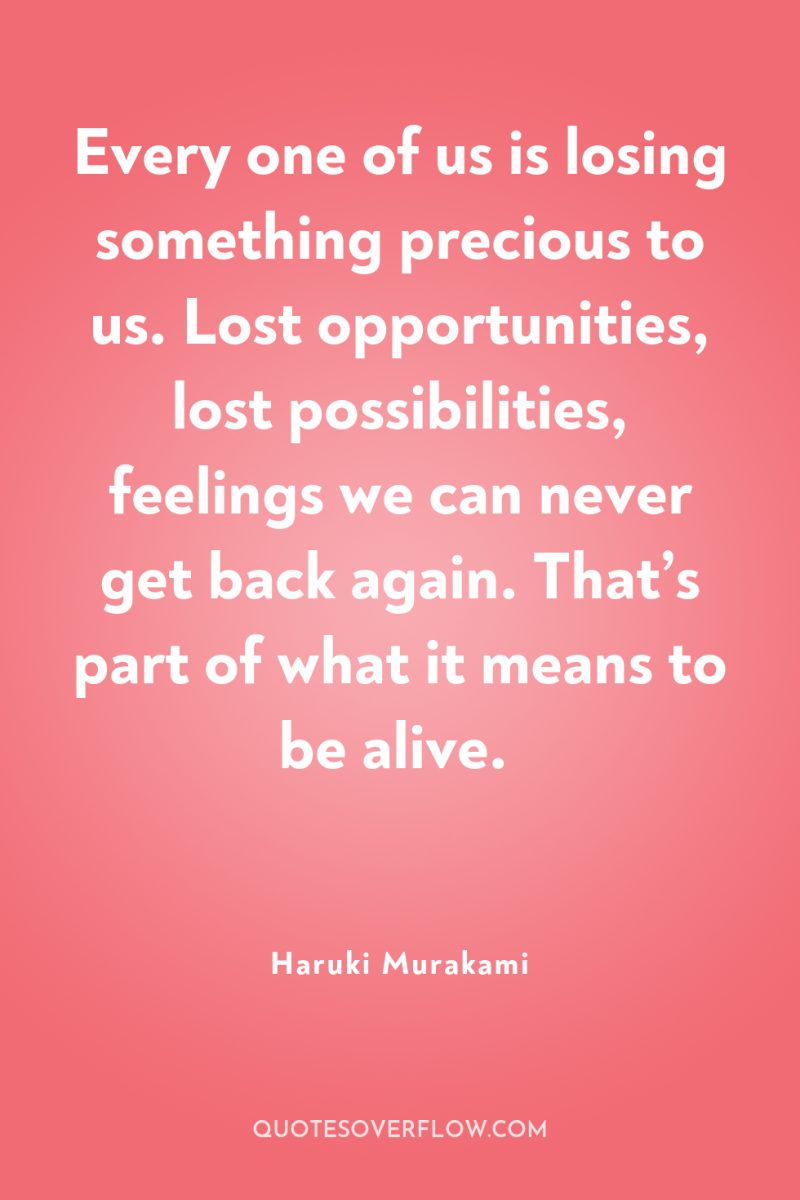
7
Every one of us is losing something precious to us. Lost opportunities, lost possibilities, feelings we can never get back again. That’s part of what it means to be alive.Haruki Murakami
8
In everybody’s life there’s a point of no return. And in a very few cases, a point where you can’t go forward anymore. And when we reach that point, all we can do is quietly accept the fact. That’s how we survive.Haruki Murakami
9
When you come out of the storm, you won’t be the same person who walked in. That’s what this storm’s all about.Haruki Murakami
10
Even chance meetings are the result of karma… Things in life are fated by our previous lives. That even in the smallest events there’s no such thing as coincidence.Haruki Murakami
11
The sense of tragedy - according to Aristotle - comes, ironically enough, not from the protagonist's weak points but from his good qualities. Do you know what I'm getting at? People are drawn deeper into tragedy not by their defects but by their virtues....[ But] we accept irony through a device called metaphor. And through that we grow and become deeper human beings.Haruki Murakami
12
That’s how stories happen – with a turning point, an unexpected twist. There’s only one kind of happiness, but misfortune comes in all shapes and sizes. It’s like Tolstoy said. Happiness is an allegory, unhappiness a story.Haruki Murakami
13
People soon get tired of things that aren't boring, but not of what is boring.Haruki Murakami
14
I don’t know what it means to live.Haruki Murakami
15
Time weighs down on you like an old, ambiguous dream. You keep on moving, trying to sleep through it. But even if you go to the ends of the earth, you won't be able to escape it. Still, you have to go there- to the edge of the world. There's something you can't do unless you get there.Haruki Murakami
16
According to Aristophanes in Plato's The Banquet, in the ancient world of legend there were three types of people. In ancient times people weren't simply male or female, but one of three types : male/male, male/female or female/female. In other words, each person was made out of the components of two people. Everyone was happy with this arrangment and never really gave it much thought. But then God took a knife and cut everyone in half, right down the middle. So after that the world was divided just into male and female, the upshot being that people spend their time running around trying to locate their missing half.Haruki Murakami
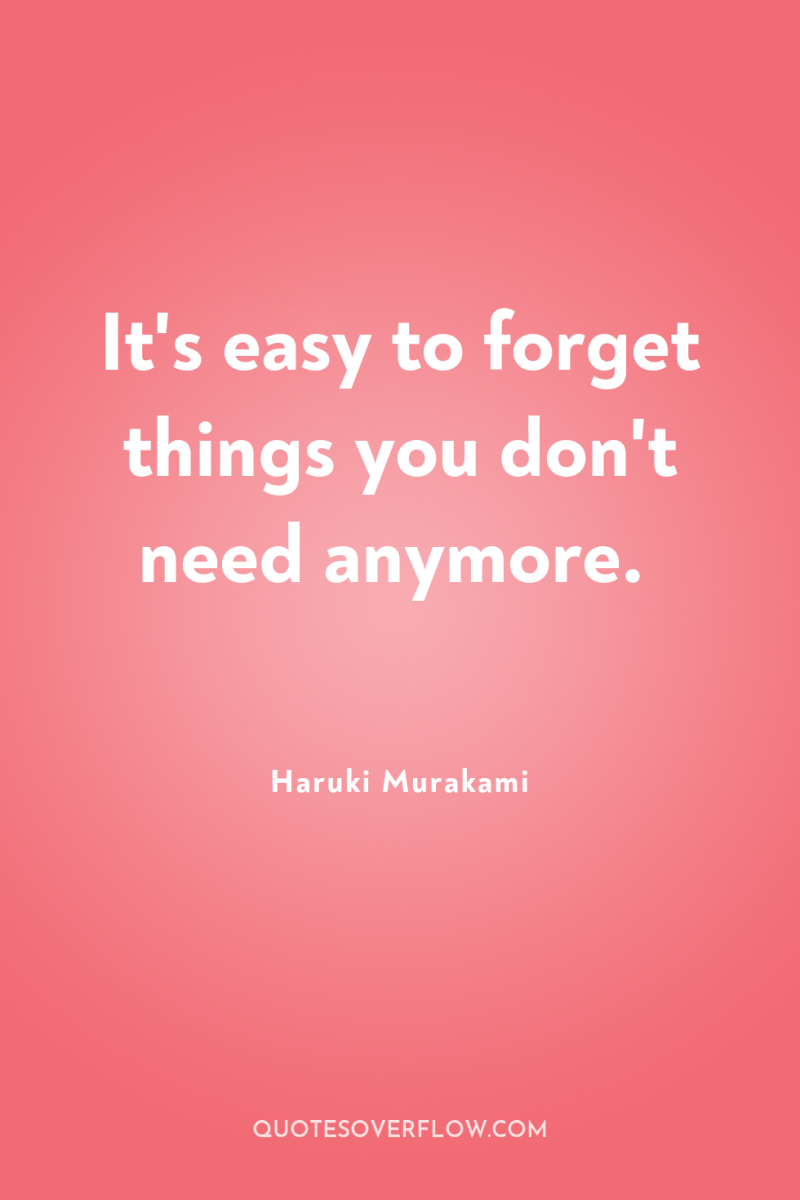
17
It's easy to forget things you don't need anymore.Haruki Murakami
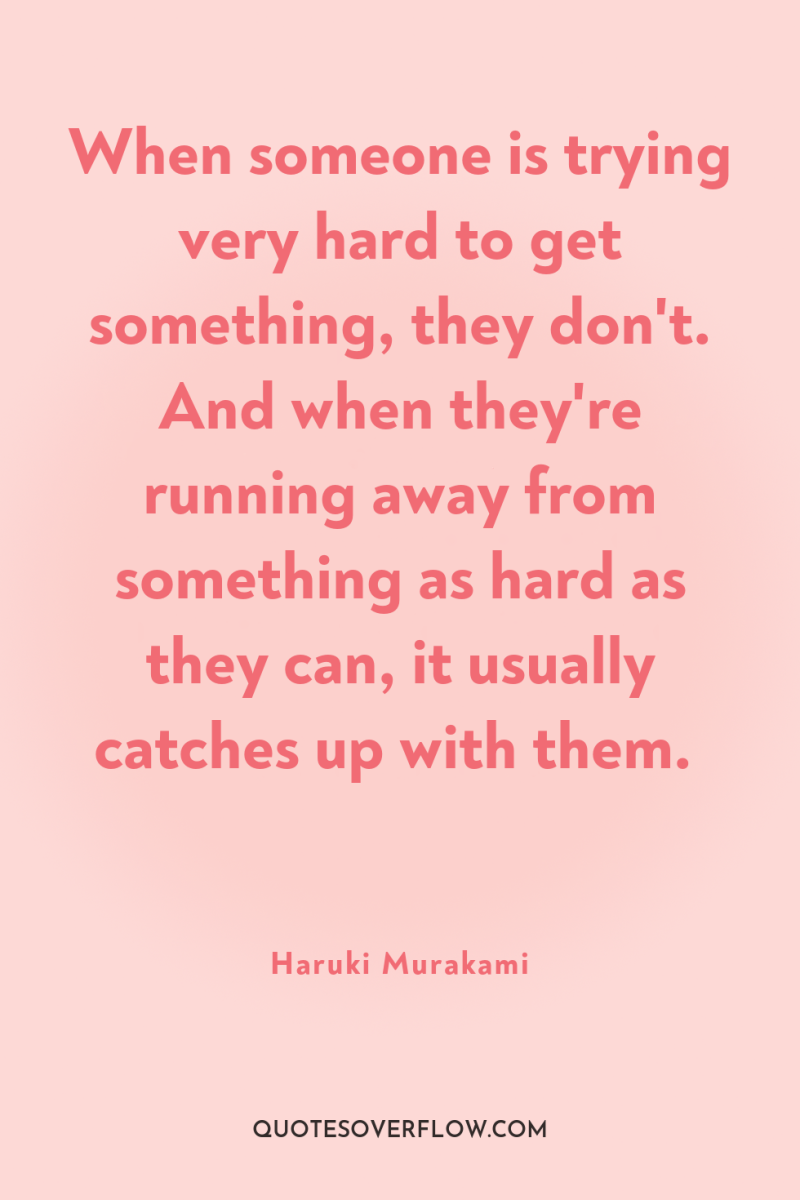
18
When someone is trying very hard to get something, they don't. And when they're running away from something as hard as they can, it usually catches up with them.Haruki Murakami
19
If you think God’s there, He is. If you don’t, He isn’t. And if that’s what God’s like, I wouldn’t worry about it.Haruki Murakami
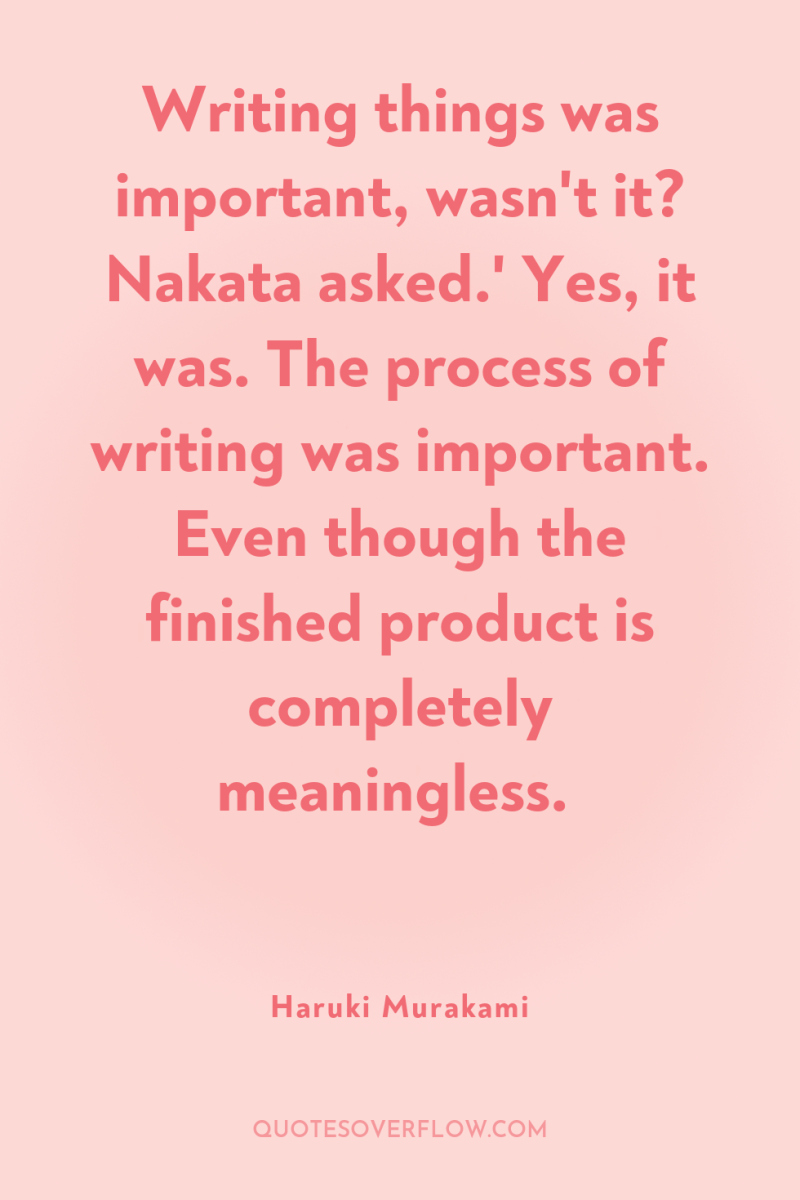
20
Writing things was important, wasn't it? Nakata asked.' Yes, it was. The process of writing was important. Even though the finished product is completely meaningless.Haruki Murakami
21
In ancient times people weren't just male or female, but one of three types: male/male, male/female, or female/female. In other words, each person was made out of the components of two people. Everyone was happy with this arrangement and never really gave it much thought. But then God took a knife and cut everybody in half, right down the middle. So after that the world was divided just into male and female, the upshot being that people spend their time running around trying to locate their missing other half.Haruki Murakami
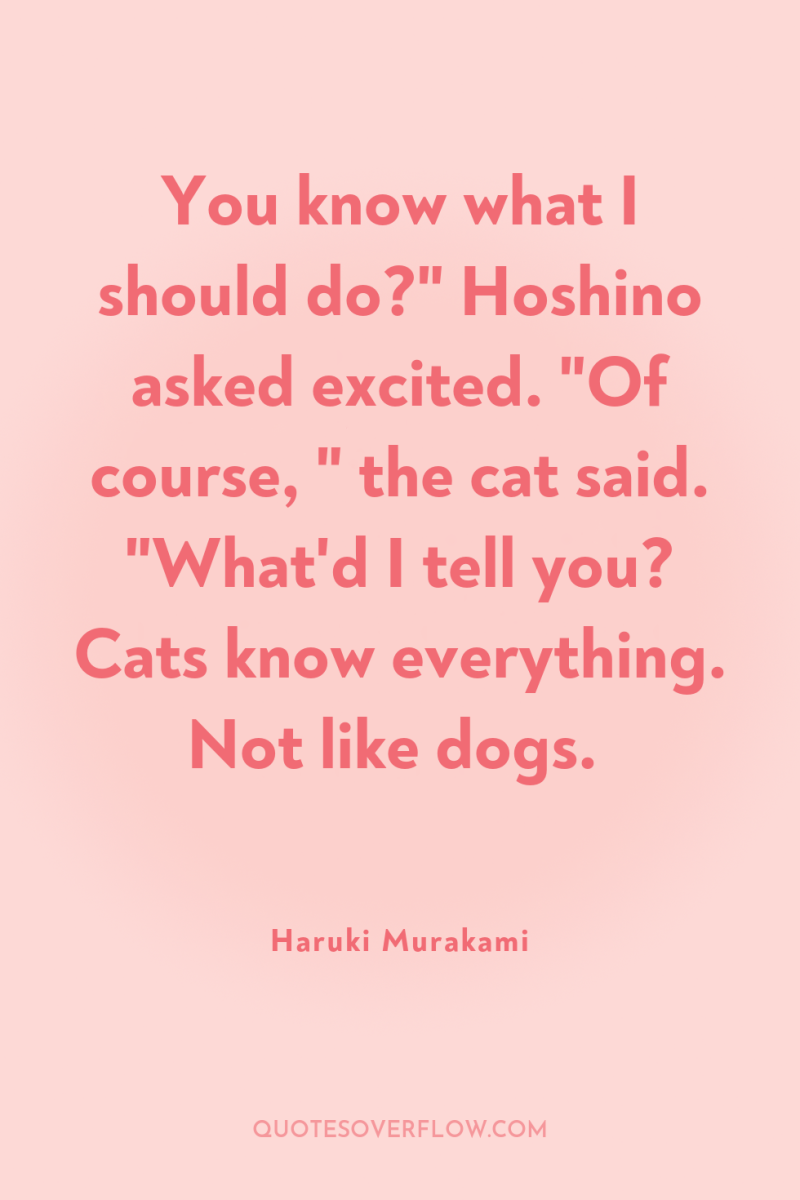
22
You know what I should do?" Hoshino asked excited. "Of course, " the cat said. "What'd I tell you? Cats know everything. Not like dogs.Haruki Murakami
23
In traveling, a companion, in life, compassion, '" she repeats, making sure of it. If she had paper and pencil, it wouldn't surprise me if she wrote it down. "So what does that really mean? In simple terms." I think it over. It takes me a while to gather my thoughts, but she waits patiently. "I think it means, " I say, "that chance encounters are what keep us going. In simple terms.Haruki Murakami
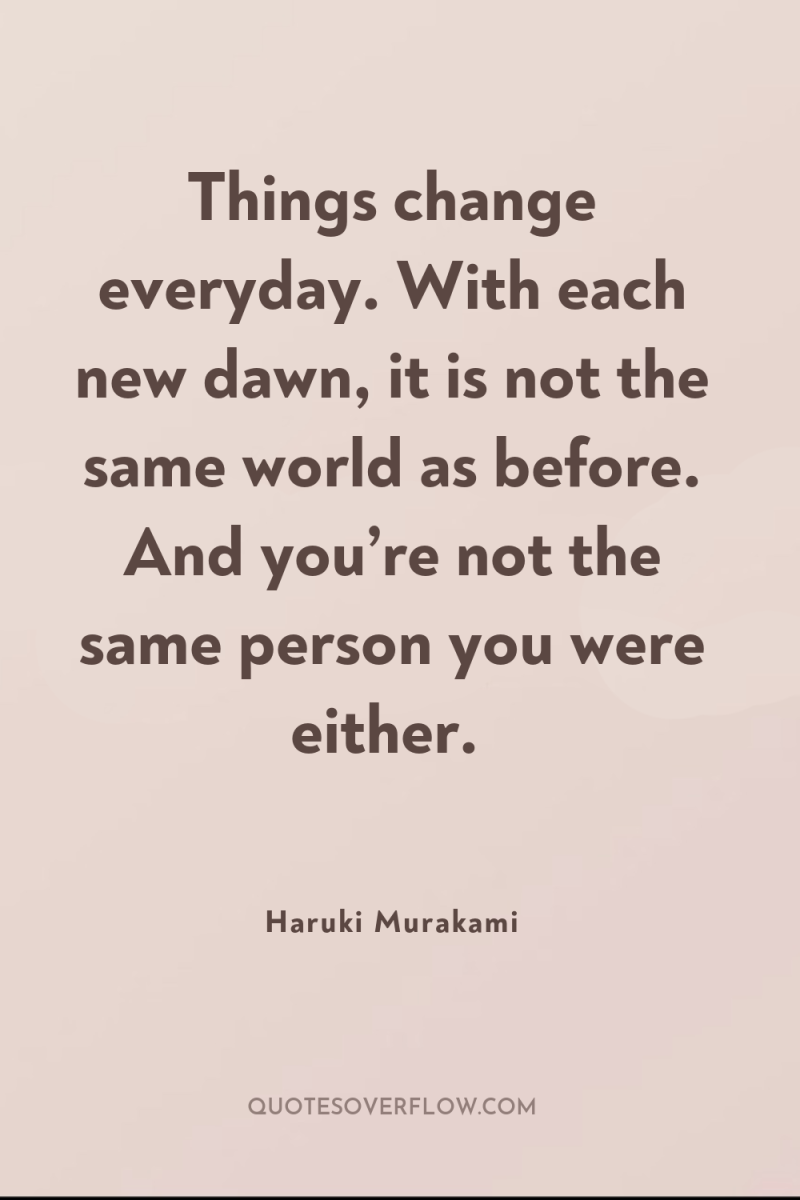
24
Things change everyday. With each new dawn, it is not the same world as before. And you’re not the same person you were either.Haruki Murakami
25
When I open them, most of the books have the smell of an earlier time leaking out between the pages - a special odor of the knowledge and emotions that for ages have been calmly resting between the covers. Breathing it in, I glance through a few pages before returning each book to its shelf.Haruki Murakami
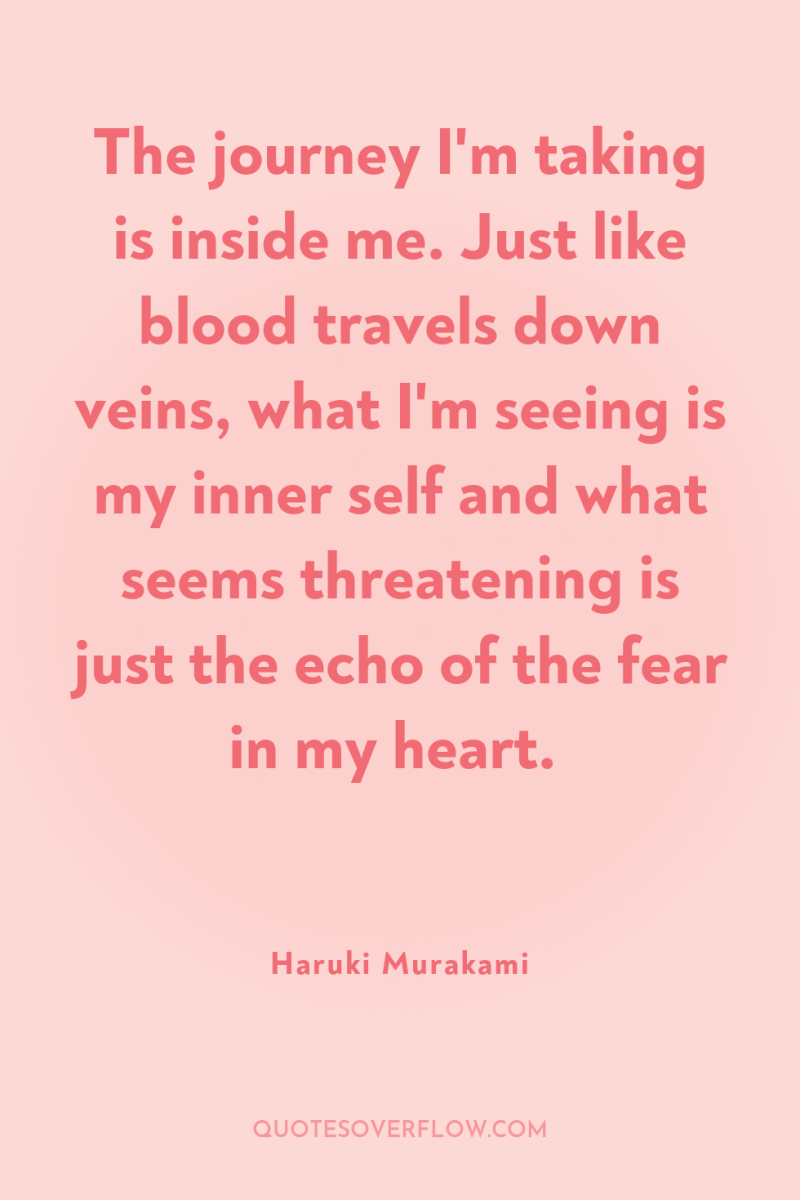
26
The journey I'm taking is inside me. Just like blood travels down veins, what I'm seeing is my inner self and what seems threatening is just the echo of the fear in my heart.Haruki Murakami
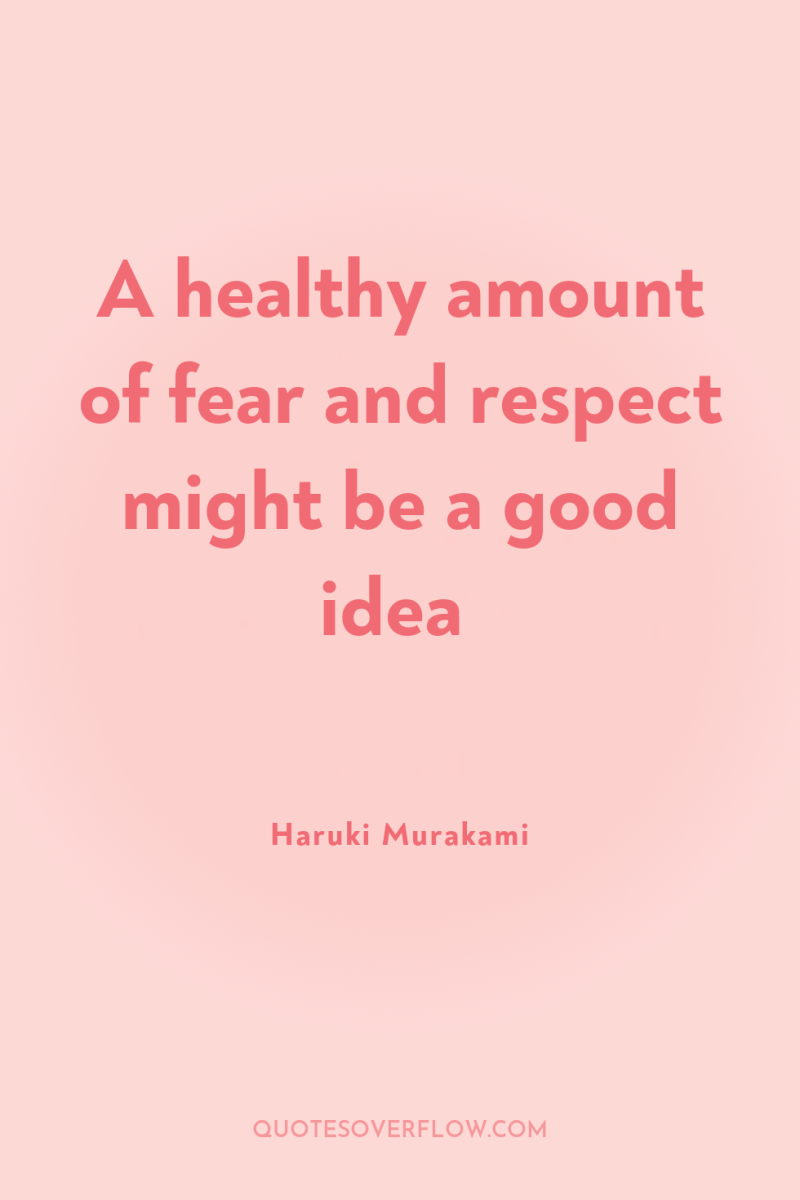
27
A healthy amount of fear and respect might be a good ideaHaruki Murakami
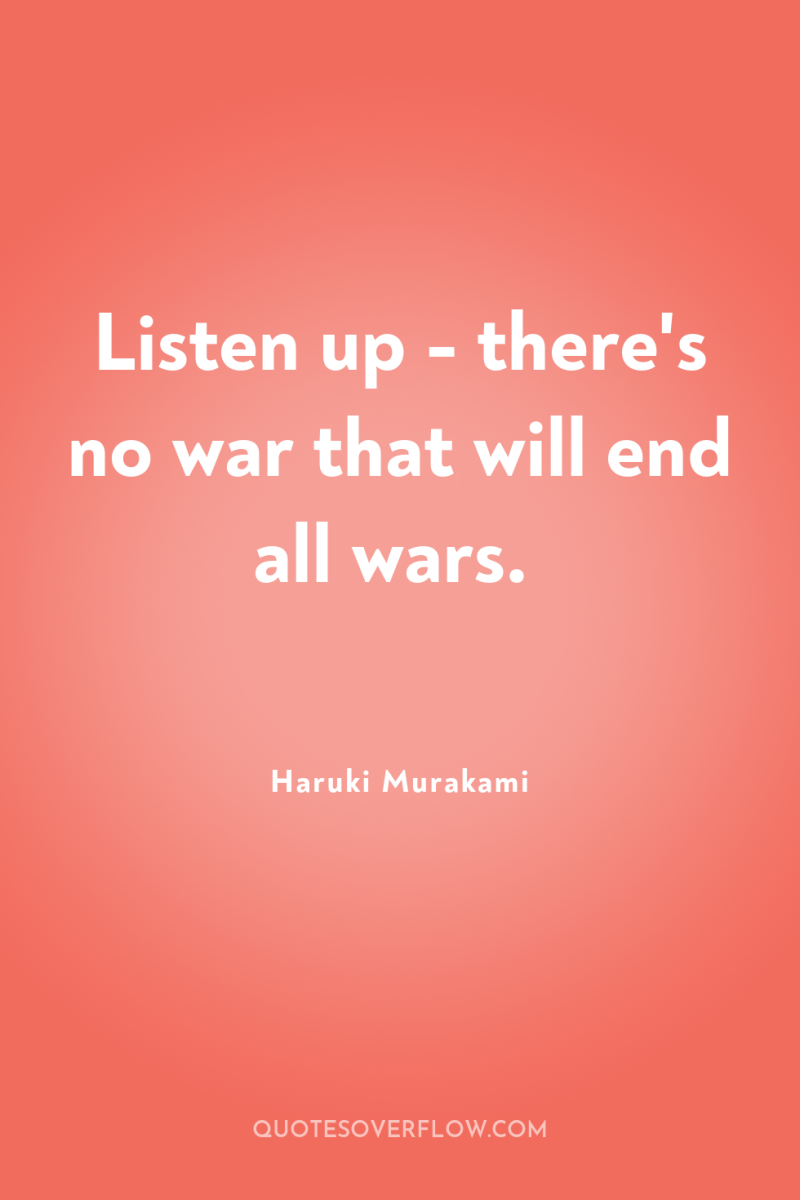
28
Listen up - there's no war that will end all wars.Haruki Murakami
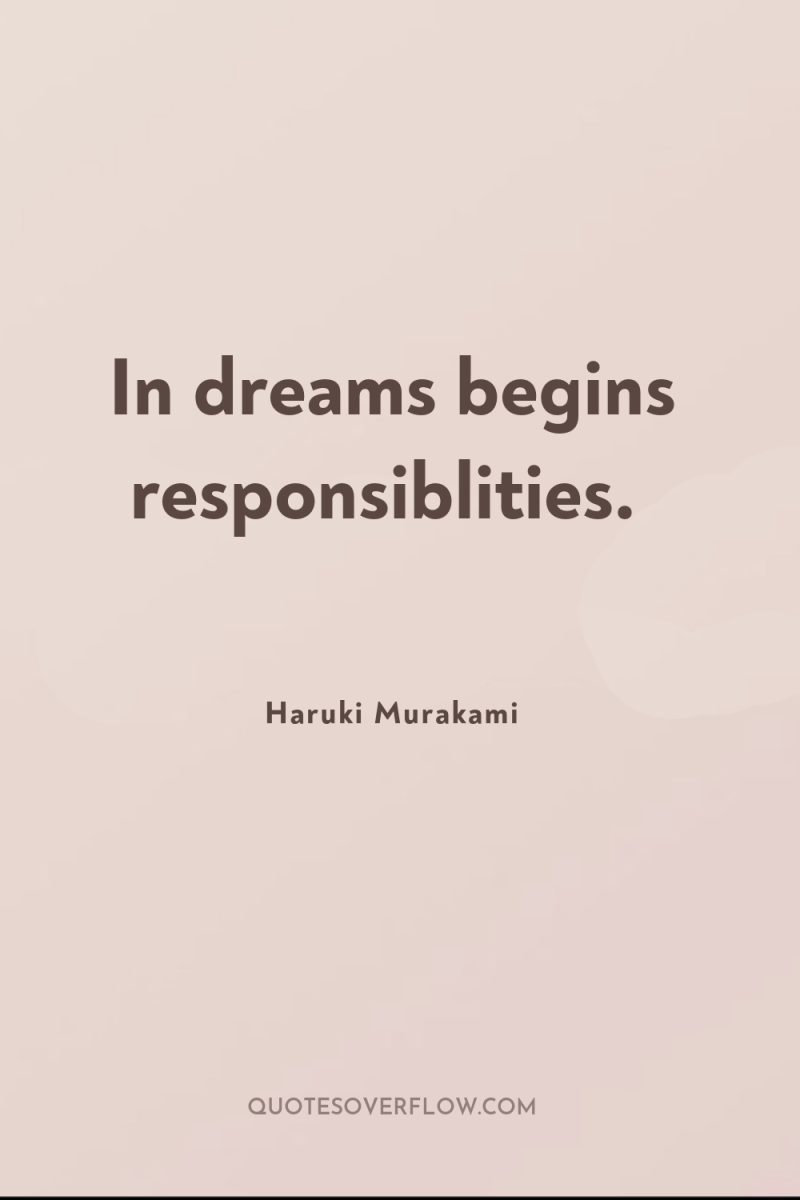
29
In dreams begins responsiblities.Haruki Murakami
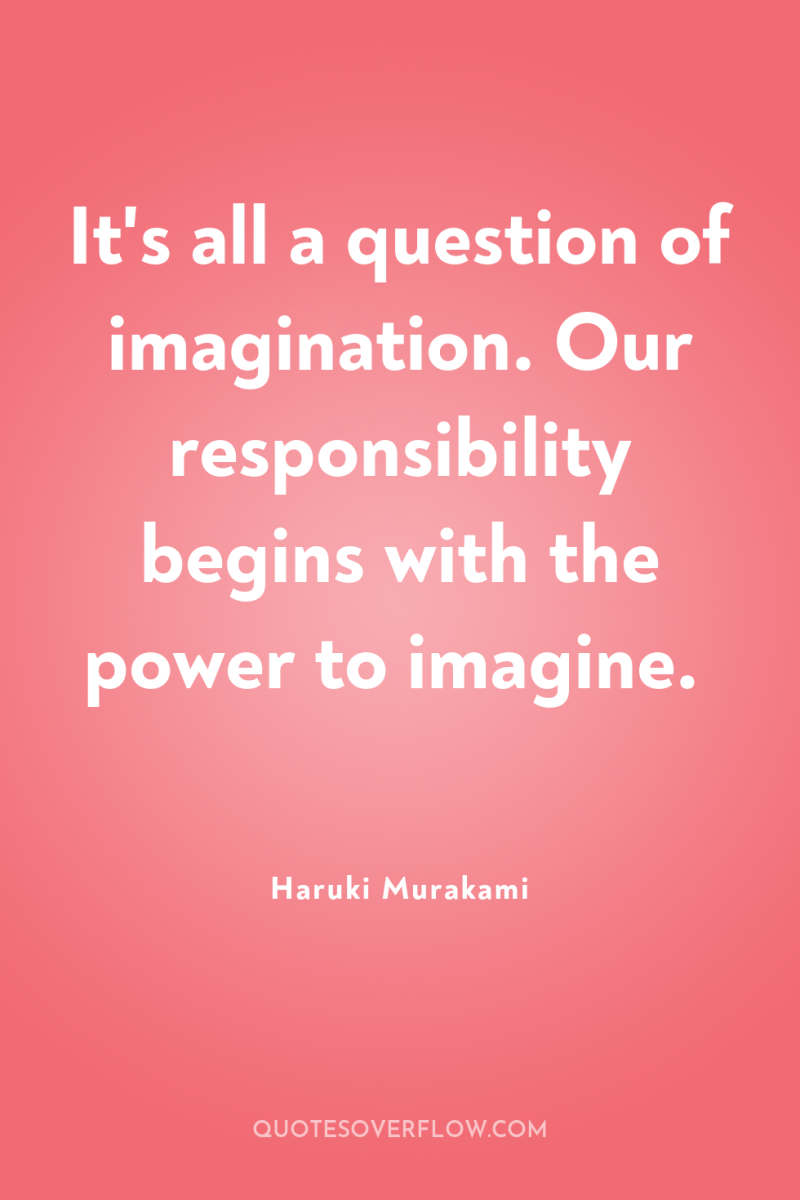
30
It's all a question of imagination. Our responsibility begins with the power to imagine.Haruki Murakami
31
Jean-Jacques Rousseau defined civilization as when people build fences. A very perceptive observation. And it’s true–all civilization is the product of a fenced-in lack of freedom. The Australian Aborigines are the exception, though. They managed to maintain a fenceless civilization until the seventeenth century. They’re dyed-in-the-wool free. They go where they want, when they want, doing what they want. Their lives are a literal journey. Walkabout is a perfect metaphor for their lives. When the English came and built fences to pen in their cattle, the Aborigines couldn’t fathom it. And, ignorant to the end of the principle at work, they were classified as dangerous and antisocial and were driven away, to the outback. So I want you to be careful. The people who build high, strong fences are the ones who survive the best. You deny that reality only at the risk of being driven into the wilderness yourself.Haruki Murakami
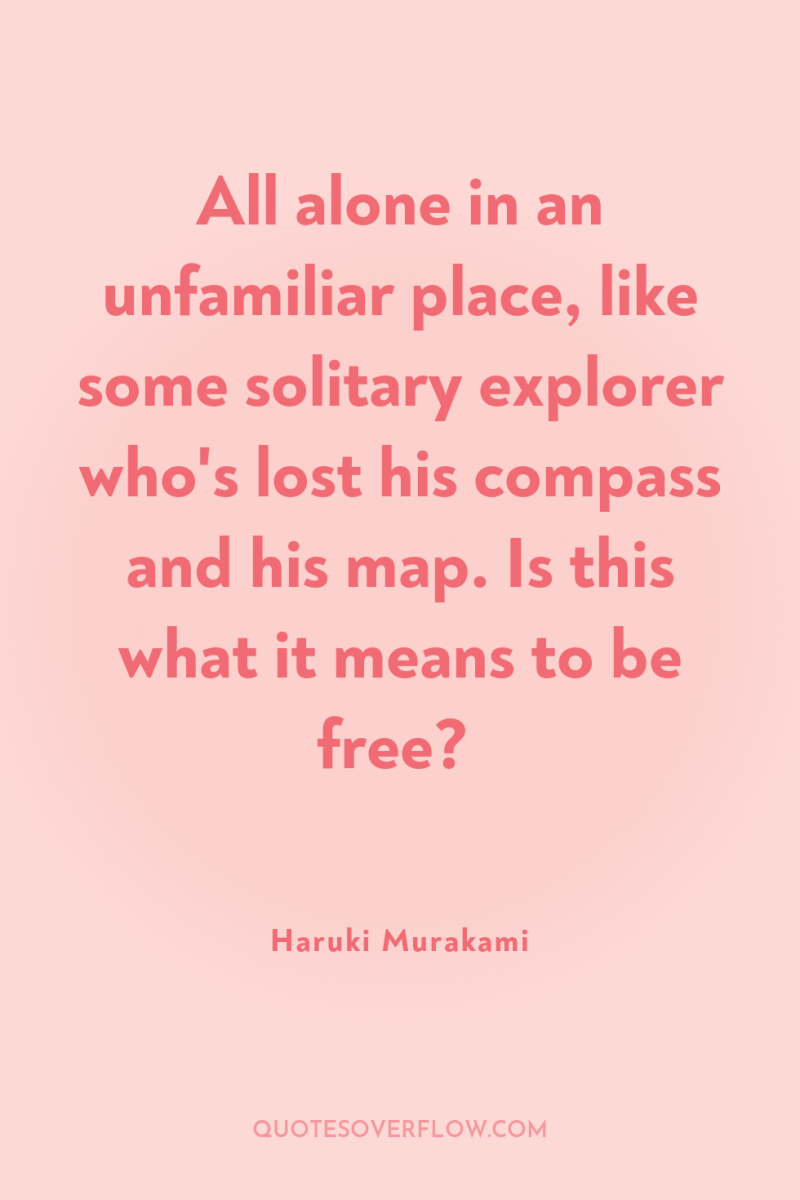
32
All alone in an unfamiliar place, like some solitary explorer who's lost his compass and his map. Is this what it means to be free?Haruki Murakami

33
I don't think I'd want Mickey Mouse pimping for me anyway.Haruki Murakami
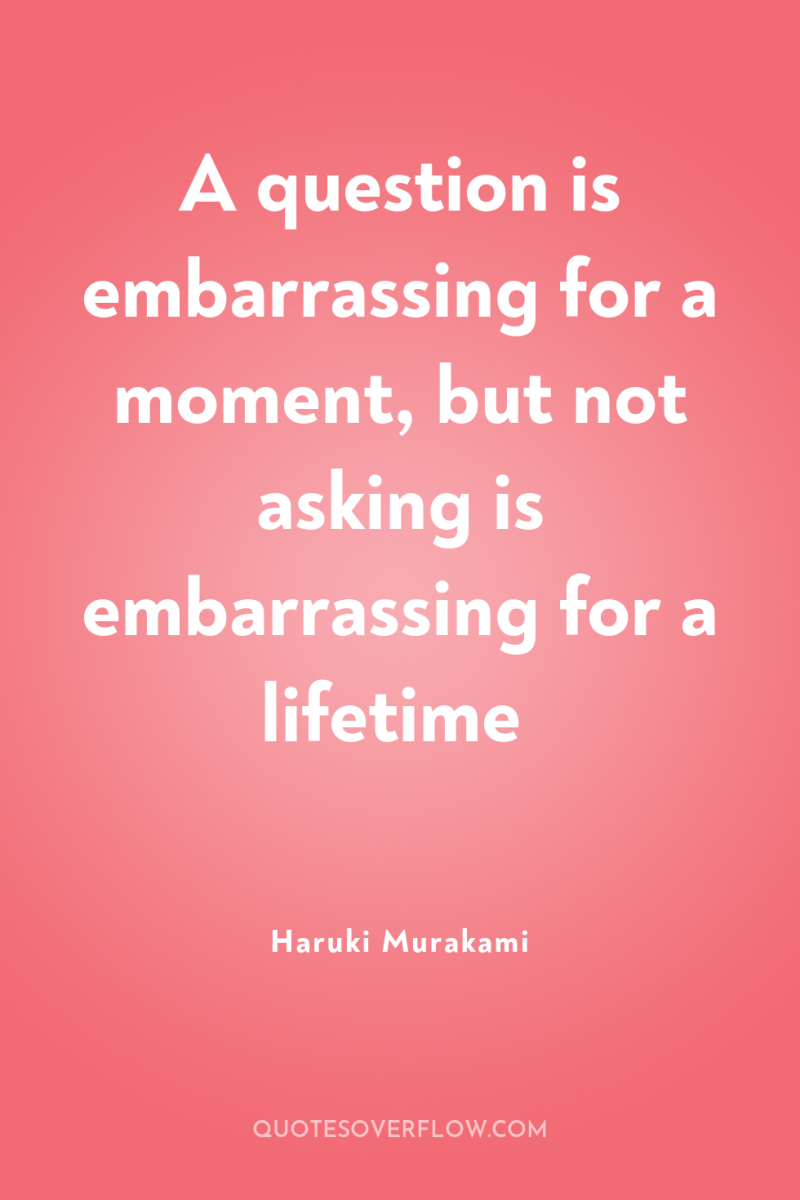
34
A question is embarrassing for a moment, but not asking is embarrassing for a lifetimeHaruki Murakami
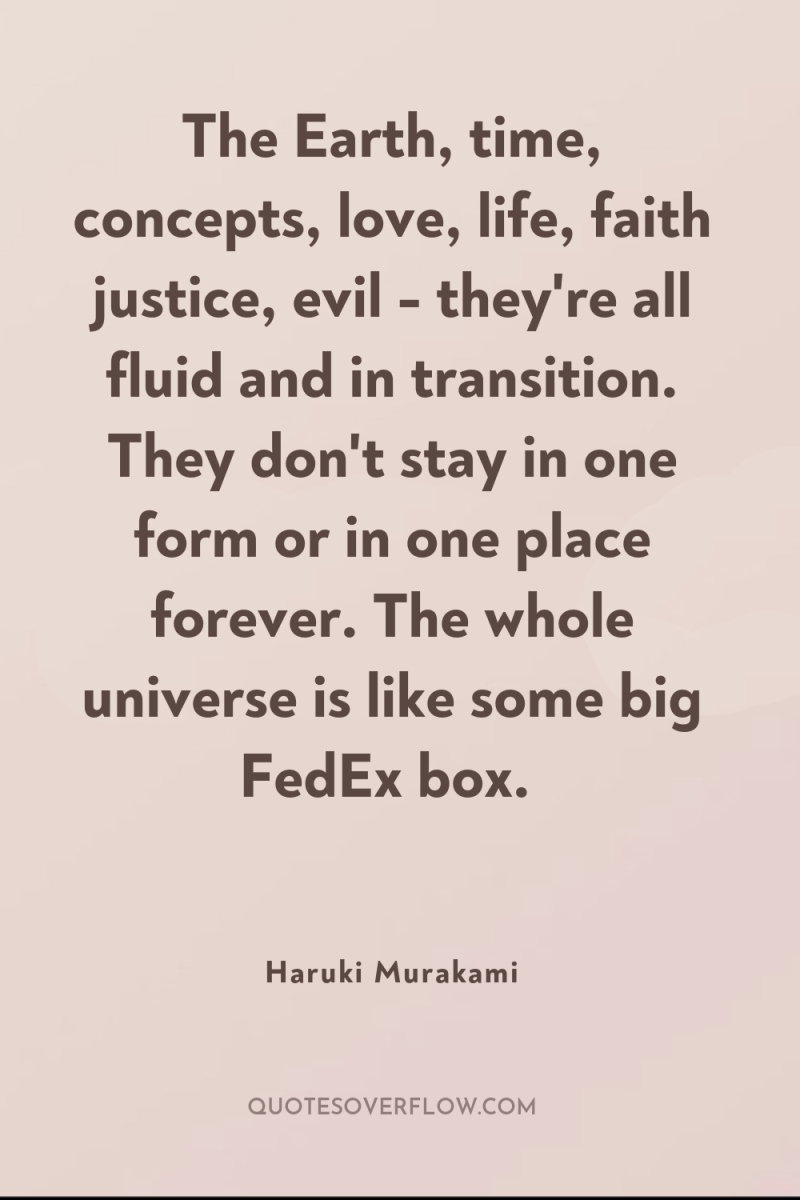
35
The Earth, time, concepts, love, life, faith justice, evil - they're all fluid and in transition. They don't stay in one form or in one place forever. The whole universe is like some big FedEx box.Haruki Murakami
36
Artists are those who can evade the verbose.Haruki Murakami
37
A deaf composer's like a cook who's lost his sense of taste. A frog that's lost its webbed feet. A truck driver with his license revoked. That would throw anybody for a loop, don't you think? But Beethoven didn't let it get to him. Sure, he must have been a little depressed at first, but he didn't let misfortune get him down. It was like, Problem? What problem? He composed more than ever and came up with better music than anything he'd ever written. I really admire the guy. Like this Archduke Trio--he was nearly deaf when he wrote it, can you believe it? What I'm trying to say is, it must be tough on you not being able to read, but it's not the end of the world. You might not be able to read, but there are things only you can do. That's what you gotta focus on--your strengths. Like being able to talk with the stone.Haruki Murakami
38
I'm alone, inside the world of the story. My favorite feeling in the world.Haruki Murakami
39
I'm alone inside the world of the story, my favorite feeling in the world.Haruki Murakami
40
Not just beautiful, though--the stars are like the trees in the forest, alive and breathing. And they're watching me.Haruki Murakami
41
Surfing's a more profound kind of sport than it looks. When you surf, you learn not to fight the power of nature, even if it gets violent.Haruki Murakami
42
Being with her I feel a pain, like a frozen knife stuck in my chest. An awful pain, but the funny thing is I'm thankful for it. It's like that frozen pain and my very existence arHaruki Murakami
43
Narrow minds devoid of imagination. Intolerance, theories cut off from reality, empty terminology, usurped ideals, inflexible systems. Those are the things that really frighten me. What I absolutely fear and loathe. Of course it's important to know what's right and what's wrong. Individual errors in judgment can usually be corrected. As long as you have the courage to admit mistakes, things can be turned around. But intolerant, narrow minds with no imagination are like parasites that transform the host, change form and continue to thrive. They're a lost cause.Haruki Murakami
44
Beyond the edge of the world there’s a space where emptiness and substance neatly overlap, where past and future form a continuous, endless loop. And, hovering about, there are signs no one has ever read, chords no one has ever heard.Haruki Murakami
45
Mr. Nakata, this world is a terribly violent place. And nobody can escape the violence. Please keep that in mind. You can't be too cautious. The same holds true for cats and human beings.Haruki Murakami
46
Once you’re lost, you panic. You’re in total despair, not knowing what to do. I hate it when that happens. Sex can be a real pain that way, ‘cause when you get in the mood all you can think about is what’s right under your nose - that’s sex, all right.Haruki Murakami
47
Adults constantly raise the bar on smart children, precisely because they're able to handle it. The children get overwhelmed by the tasks in front of them and gradually lose the sort of openness and sense of accomplishment they innately have. When they're treated like that, children start to crawl inside a shell and keep everything inside. It takes a lot of time and effort to get them to open up again. Kids' hearts are malleable, but once they gel it's hard to get them back the way they were.Haruki Murakami
48
Your heart is like a great river after a long spell of rain, spilling over its banks. All signposts that once stood on the ground are gone, inundated and carried away by that rush of water. And still the rain beats down on the surface of the river. Every time you see a flood like that on the news you tell yourself: That’s it. That’s my heart.Haruki Murakami
49
It was a strange feeling, like touching a void.Haruki Murakami
50
The woman glares at him and, after taking a breath, forges on. "One other issue I'd like to raise is how you have authors here separated by sex."" Yes, that's right. The person who was in charge before us cataloged these and for whatever reason divided them into male and female. We were thinking of recataloging all of them, but haven't been able to as of yet."" We're not criticizing you for this, " she says. Oshima tilts his head slightly." The problem, though, is that in all categories male authors are listed before female authors, " she says. "To our way of thinking this violates the principle of sexual equality and is totally unfair." Oshima picks up her business card again, runs his eyes over it, then lays it back down on the counter. "Ms. Soga, " he begins, "when they called the role in school your name would have come before Ms. Tanaka, and after Ms. Sekine. Did you file a complaint about that? Did you object, asking them to reverse the order? Does G get angry because it follows F in the alphabet? Does page 68 in a book start a revolution just because it follows 67?""That's not the point, " she says angrily. "You're intentionally trying to confuse the issue." Hearing this, the shorter woman, who'd been standing in front of a stack taking notes, races over." Intentionally trying to confuse the issue, " Oshima repeats, like he's underlining the woman's words." Are you denying it?"" That's a red herring, " Oshima replies. The woman named Soga stands there, mouth slightly ajar, not saying a word." In English there's this expression red herring. Something that's very interesting but leads you astray from the main topic. I'm afraid I haven't looked into why they use that kind of expression, though."" Herrings or mackerel or whatever, you're dodging the issue."" Actually what I'm doing is shifting the analogy, " Oshima says. "One of the most effective methods of argument, according to Aristotle. The citizens of ancient Athens enjoyed using this kind of intellectual trick very much. It's a shame, though, that at the time women weren't included in the definition of 'citizen.'""Are you making fun of us?" Oshima shakes his head. "Look, what I'm trying to get across is this: I'm sure there are many more effective ways of making sure that Japanese women's rights are guaranteed than sniffing around a small library in a little town and complaining about the restrooms and the card catalog. We're doing our level best to see that this modest library of ours helps the community. We've assembled an outstanding collection for people who love books. And we do our utmost to put a human face on all our dealings with the public. You might not be aware of it, but this library's collection of poetry-related material from the 1910s to the mid- Showa period is nationally recognized. Of course there are things we could do better, and limits to what we can accomplish. But rest assured we're doing our very best. I think it'd be a whole lot better if you focus on what we do well than what we're unable to do. Isn't that what you call fair? .Haruki Murakami